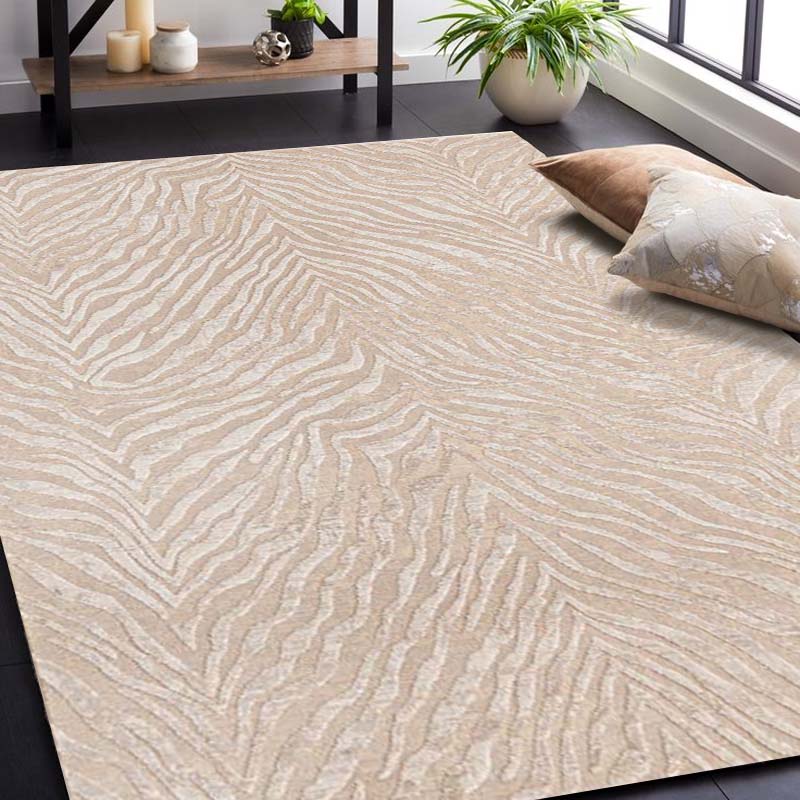In today’s design and construction industry, the demand for materials that are both aesthetically pleasing and environmentally responsible has never been higher. Clients, from luxury homeowners to commercial developers, are seeking solutions that contribute to well-being and a healthier planet. Organic wool carpet stands out as a superior choice, offering a perfect blend of natural beauty, unmatched performance, and a clear commitment to sustainability. It’s more than just a floor covering; it’s a strategic investment in a space’s long-term value and integrity.
Why Organic Wool Sets a New Standard
Choosing organic wool carpet is a conscious decision to prioritize health, sustainability, and quality. Its unique natural properties make it a standout material in a market dominated by synthetic alternatives.
Health-First, Non-Toxic Properties: Unlike synthetic carpets that can off-gas Volatile Organic Compounds (VOCs) from chemicals and adhesives, organic wool is free from harsh toxins. It is naturally hypoallergenic and inherently fire-resistant, providing a safer, cleaner indoor air environment for occupants.
Unmatched Sustainability: As a renewable and biodegradable resource, wool has a minimal environmental footprint. Its production requires less energy and water compared to synthetic fibers, and at the end of its life, it naturally decomposes. Specifying organic wool can also contribute to green building certifications like LEED and WELL.
Natural Durability and Resilience: Wool fibers possess a natural crimp and elasticity, allowing them to bounce back from crushing and wear. This inherent resilience means that an organic wool carpet can maintain its appearance and texture for years, even in high-traffic areas.
Superior Performance: Wool is a natural insulator, helping to regulate temperature and reduce energy costs. Its fibers also naturally wick away moisture and absorb sound, creating a quieter and more comfortable interior space.
Choosing the Right Organic Wool Carpet for Your Project
For architects, designers, and developers, selecting the ideal organic wool carpet involves a few key considerations to ensure it meets both design and performance goals.
Verify Certifications: The term “organic” is powerful. Look for certifications from trusted third-party organizations like the Global Organic Textile Standard (GOTS) to verify that the wool was sourced and processed without harmful chemicals, from farm to factory.
Consider Pile and Construction: The carpet’s pile—whether it’s a plush cut pile or a durable loop pile—will impact its texture, feel, and suitability for different applications. A tighter loop pile, for instance, is often preferred for commercial settings.
Assess Dyeing and Color Fastness: Ensure that the colors are achieved with low-impact or natural dyes that are free of heavy metals and toxins, maintaining the product’s integrity without compromising color vibrancy.
Match with Project Aesthetics: Organic wool’s natural texture and rich color options provide a versatile canvas that can complement a wide range of design aesthetics, from minimalist Scandinavian to classic and rustic styles.
Conclusion
Organic wool carpet is not just another material—it is a foundational choice for projects that aim to be truly sustainable, healthy, and timeless. By providing a combination of superior performance, tactile luxury, and an unwavering commitment to environmental responsibility, it allows businesses to create spaces that are not only beautiful but also reflect a deeper understanding of quality and integrity. It is an investment that resonates with modern values and delivers lasting returns.
FAQ
How do organic wool carpets compare in price to synthetic options? While the initial cost of organic wool carpet is generally higher than synthetic options, its superior durability, long lifespan, and natural resistance to staining can lead to a lower total cost of ownership over time.
Is organic wool carpet difficult to clean and maintain? No. Wool’s natural fibers have a protective outer layer that resists soiling and staining. Regular vacuuming is usually sufficient, and professional cleaning is recommended periodically to maintain its fresh appearance.
Can organic wool carpet be used in commercial settings with high foot traffic? Yes. Due to its natural resilience and durability, high-quality organic wool carpet is an excellent choice for commercial projects, including boutique hotels, offices, and retail spaces. Its ability to maintain its appearance under heavy use makes it a practical solution.
Post time: Sep-10-2025












